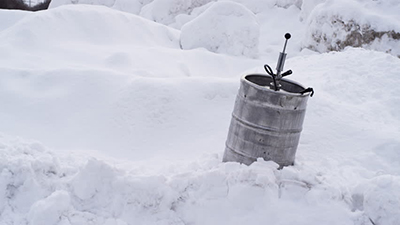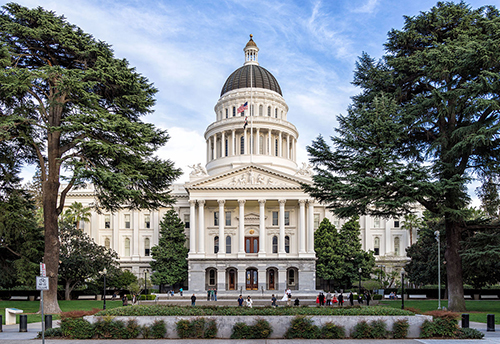Blog
Anchorage Goes to the Polls for Charge for Harm
- Details
- Created: Friday, March 29 2019 17:54
 UPDATE 4/10/19: Prop 9 seems headed for defeat. As of the most recent ballot count, votes opposing the bill lead 34,076 to 29,291. "This is disappointing," said Alcohol Justice Executive Director/CEO Bruce Lee Livingston, "but it's hard for localities to get Charge for Harm bills passed when Big Alcohol spends hundreds of thousands on deceptive advertising to tilt the scales. Congratulations to Anchorage for even proposing this kind of smart, forward-thinking solution to alcohol harm."
UPDATE 4/10/19: Prop 9 seems headed for defeat. As of the most recent ballot count, votes opposing the bill lead 34,076 to 29,291. "This is disappointing," said Alcohol Justice Executive Director/CEO Bruce Lee Livingston, "but it's hard for localities to get Charge for Harm bills passed when Big Alcohol spends hundreds of thousands on deceptive advertising to tilt the scales. Congratulations to Anchorage for even proposing this kind of smart, forward-thinking solution to alcohol harm."
Imagine a drug which has the potential to hurt someone, even ruin their life. Imagine that this drug is associated with injury, accidents, and violence. Now imagine if someone asked you to put aside a few cents each time you used this drug, just in case these destructive outcomes happened to you. It just makes sense—you are charged for the potential harm the drug causes. On April 2nd, voters in Anchorage, Alaska, go to the polls to decide on just such a Charge for Harm tax, Proposition 9. And Big Alcohol is flooding the airwaves to keep common sense from becoming law.
The bill, Proposition 9, would raise taxes on alcoholic beverages by 5%. According to Anchorage mayor Ethan Berkowitz, the money would be solely dedicated to detox and treatment services, programs aimed at addressing homelessness, and public safety initiatives. It even has the support of some liquor store owners. But megabrewers Annheuser-Busch InBev and MillerCoors have jumped into the fray, backing opposition campaigns that try to portray the tax as antithetical to Alaska.
Yet 11 other communities in Alaska already have local alcohol taxes, including Fairbanks and Juneau. Alcohol harm remains a pressing problem for Alaska. According to Proposition 9 backers Recover Alaska, alcohol harm costs the state $1.84 billion and directly causes 285 deaths yearly. As Sgt. Jeremy Conkling of the Anchorage Police Department points out in an op-ed supporting the tax, “[we] are already paying for these social woes. Paying for police and fire service, emergency room costs and emergency housing is expensive, and does do much for keeping individuals or the whole community safe. It’s a Band-Aid for the overall problems.”
Rather than seek short-term help for the chronic tragedy of alcohol harm, Anchorage voters have the opportunity to take responsibility for the healing process. On April 2nd, they have the chance to take the most powerful action in the name of Charge for Harm: make it a normal part of everyday life.
READ MORE about Charge for Harm.
Will California Save Lives with Point .05?
- Details
- Created: Tuesday, March 05 2019 18:26
When it comes to fighting dangerous drivers, California is poised to join the developed world.
Intoxicated driving remains a major cause of death in California, having claimed at least 1120 lives in 2017. Now, the California legislature is considering a powerful law to rein in the chaos. Thanks to the work of dedicated activists and conscience-driven lawmakers, a landmark piece of legislation could set a 0.05% Blood Alcohol Content (BAC) as the legal limit for drivers. Currently, the legal limit is 0.08 BAC, and that little downwards tweak could save hundreds of lives.
The bill, AB 1713, authored by State Assemblymembers Autumn Burke and Heath Flora, would make California only the second state in the U.S. to lower the limit. Utah passed a 0.05 bill in 2017, which went into effect at the beginning of this year. But elsewhere in the world, a 0.05BAC is the standard. Countries like Australia, France, Germany, Israel, Spain, Taiwan and Turkey all adhere to this standard, while others like Japan, China, and Sweden, insist drivers have a BAC of 0.03 or lower.
Impetus for the bill derives in part from Liam’s Life, an organization started by Marcus Kowal and Mishel Eder in memory of their son, who was struck by an incapacitated driver in 2015. In their campaign’s tribute to Liam, Kowel and Eder note that “drunk driving is a completely preventable problem, yet it still continues to happen.” “Liam’s Law,” as the bill is nicknamed, has the potential to reduce fatal car crashes as much as 18%, according to international research.
As California deliberate Liam’s Law, Oregon also has a 0.05 BAC bill in front of the legislature. State Senate President Peter Courtney proposed the bill, noting that “this is a Mount Everest move. It’s doable, but it isn’t going to be easy. I’m going to fight like hell to make it happen.” The American Beverage Institute—one of Big Alcohol’s major domestic lobbies—has already objected to the bill, as they did in Utah. Chief among their objections is the fact that the majority of alcohol-related fatalities involved BACs of 0.15 percent or higher.
“We’ve dismissed ABI's nonsense before, and so did Utah” said Michael Scippa, Public Affairs Director of Alcohol Justice, “and it’s scientifically illiterate. We know that Point .05 Saves Lives! Denying that just to protect your profits is murderously ignorant.”
Both California and Oregon’s bills are currently in committee, and will be followed closely by Alcohol Justice.
READ MORE about how Point 05 Saves Lives.
CA Alcohol Legislation to Watch in 2019
- Details
- Created: Thursday, February 21 2019 18:12
 Lowlights include cutting alcohol taxes, continuing the campaign to strip protective last calls
Lowlights include cutting alcohol taxes, continuing the campaign to strip protective last calls
As California lawmakers go into a new legislative year, they bring with them some classically bad ideas. From lifting restrictions on alcohol sales to lowering taxes on youth-friendly beverages, the slate of bills is peppered with red flags. One promising bill, however, takes a novel approach to reducing driving under the influence (DUI).
AB 205, the “All Beer, All the Time” Bill: In a short-sighted giveaway to megabrewers, this bill would add new beverages to the beer category. Specifically, it eliminates the requirement that a beer be made of barley, malt, and hops, including alcoholic beverages made from fermented fruit, honey, and natural sugars. This distinction affect more than just the technical definition of beer. Beer enjoys lower tax rates and can be sold in more kinds of stores than other alcoholic beverages (specifically, wine and liquor). Already, Big Alcohol finds loopholes to get alcopops and similar fruit-flavored drinks fortified with distillled spirits sold as “beer”. This bill just makes it easier to inundate the state with this kind of kid-friendly, easy-to-drink faux Schlitz.
AB 475, the “Drunk Artist” Bill: Every year, the legislature tries to carve out a new, special venue where alcohol can be distributed. This year, “paint and sip” classes are the benefactor. This kind of “class” involves getting tipsy while learning or practicing painting. Already, venues licensed to serve alcohol offer this kind of recreation. AB 475 would create a new carveout so that anyone offering that kind of class could get a liquor license. Aside from increasing overconsumption and alcohol outlet overconcentration, it continues the Dry Bar Bill’s precedent wherein any economic activity can be used as an excuse for alcohol service. Ultimately, real lessons do not require drunk students.
SB 55, the “Guns and DUI” Bill: This innovative bill would revoke a gun owner’s permit for 10 years if they violate certain laws involving alcohol intoxication, including DUI. On a simple level, this provides a new enforcement mechanism to dissuade drivers from getting behind the wheel after drinking. On a more complicated level, this acknowledges the tragic role alcohol intoxication plays in encouraging firearms violence. This law would reduce both forms of alcohol-related harm—gun-related and dangerous-driving-related.
SB 58, the “Relentlessly Dangerous 4 A.M. Bar” Bill: As detailed elsewhere, 2018 marks the third consecutive year in which Sen. Scott Wiener has attempted to overturn California’s standardized last call time. In this case, the senator may be “governor shopping”. After all, erstwhile Gov. Jerry Brown was crucial in vetoing last year’s version of the bill, while Governor Gavin Newsom is, himself, a benefactor of the alcohol industry. This makes it imperative that concerned Californians stop the bill in the legislature. After all, later last call times are associated with more violence, injury, emergency room impact, crime and enforcement costs, and, of course, early-morning dangerous driving.
Alcohol Justice remains determined to fight alcohol deregulation and dangerous legislation. We will keep you updated as these bills move through the capitol, or you can follow them on our California Alcohol Legislation Tracker.
READ MORE about the Dry Bar Bill.
READ MORE about how alcohol may compromise the governor.
READ MORE about the dangers of late last call times.
More Articles ...
Subcategories
Help us hold Big Alcohol accountable for the harm its products cause.
| GET ACTION ALERTS AND eNEWS |
STAY CONNECTED    |
CONTACT US 24 Belvedere St. San Rafael, CA 94901 415-456-5692 |
SUPPORT US Terms of Service & Privacy Policy |


